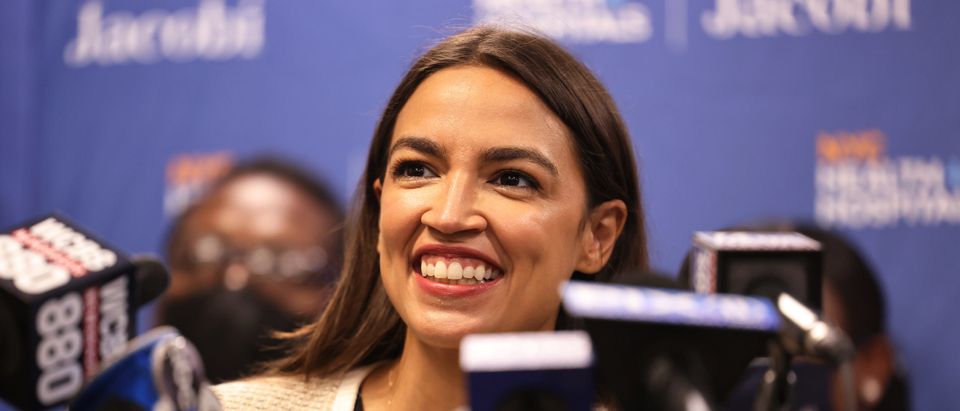Democratic New York Rep. Alexandria Ocasio-Cortez said Friday that the U.S. embargo was partly responsible for Cuban suffering.
Ocasio-Cortez released a statement as freedom protesters continued to take to the streets in Cuba despite crackdowns from the government. She said that it was important to stand with the Cuban people but that it was also necessary to acknowledge the role the U.S. could have played in making the situation worse. (RELATED: ‘Squad’ Socialists In Congress Oddly Quiet About Anti-Communism Protests In Cuba)
“We stand in solidarity with the Cuban people and condemn the suppression of the media, speech and protest,” Ocasio-Cortez tweeted along with a full statement. “We also call for an end to the U.S. embargo and additional Trump-era restrictions that are profoundly contributing to the suffering of Cubans.”
We stand in solidarity with the Cuban people and condemn the suppression of the media, speech and protest.
We also call for an end to the U.S. embargo and additional Trump-era restrictions that are profoundly contributing to the suffering of Cubans. pic.twitter.com/Fw6Quv5TAN
— Rep. Alexandria Ocasio-Cortez (@RepAOC) July 16, 2021
“We are seeing Cubans rise up and protest for their rights like never before. We stand in solidarity with them, and we condemn the anti-democratic actions led by President Diaz-Canel,” Ocasio-Cortez’s statement began, and she went on to criticize the Cuban government for suppressing the speech of the citizens and restricting their access to the internet.
“We also must name the U.S. contribution to Cuban suffering: our sixty-year-old embargo,” Ocasio-Cortez continued, noting that the United Nations had called for an end to the embargo just a month earlier.
Ocasio-Cortez went on to claim that the Cuban embargo, along with other U.S. policies in Latin American countries, were intentionally designed to inflict pain on the people.
“The embargo is absurdly cruel and, like too many other U.S. policies targeting Latin Americans, the cruelty is the point,” she said. “I outright reject the Biden administration’s defense of the embargo. It is never acceptable for us to use cruelty as a point of leverage against everyday people.”
The Cuban embargo was initially put into place by the late President John F. Kennedy, but more recent adjustments to the policy have opened the door for the U.S. to export food to the island nation.


